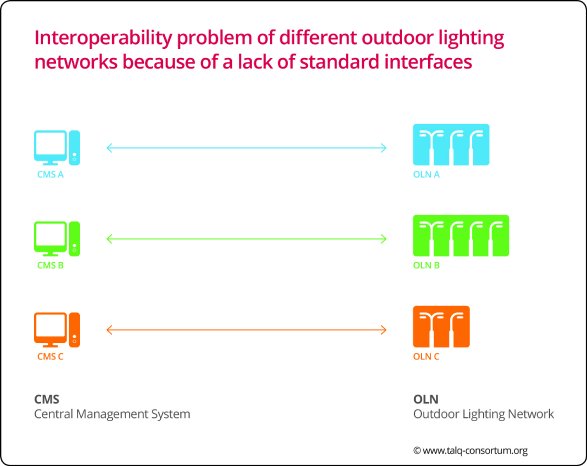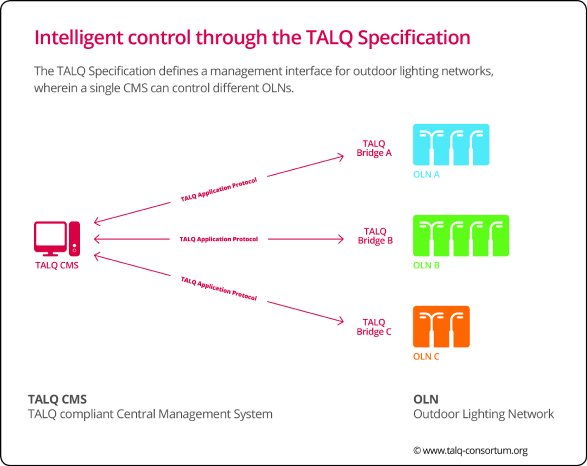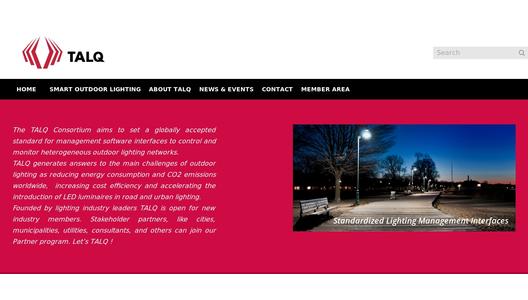Today cities face many challenges on the way to become smart cities, including to make sure that they decide for state-of-the-art technology when developing a large variety of public services ranging from outdoor lighting over parking and waste management to E-Mobility and many other applications. Most of these services are long-term investments and will be in use for decades. Besides trying to foster competition and negotiate the best pricing, public purchasers prefer to invest in open systems to guarantee continued access to future-proof solutions. Leading cities are increasingly looking to select interoperable solutions across their systems. For instance, when lighting control platforms are integrated with sensor networks and traffic systems, interoperable interfaces for this different kind of smart city applications are urgently needed.
TALQ opening up for smart city solutions
In 2012, leading lighting industry players founded the TALQ Consortium to develop an interoperable interface to connect and manage heterogeneous street lighting networks from various hardware and software vendors. The first TALQ-compliant systems are expected to be certified in the second half of 2016. Now that the Outdoor Lighting Standard is nearly rolled out, the Steering Committee recently decided to broaden up its scope. By defining a standard interface for smart city applications, TALQ will enable cities to have more flexibility, reduce risk and ultimately enable greater operational savings.
Within the TALQ Consortium, a new Smart City ‘Requirements Workgroup’ was set up with the scope to examine and define the requirements when expanding the TALQ Specification to smart city applications. “We will first analyze other emerging smart city interface standards and highlight why an adoption of the TALQ Specification promises benefits to cities.” explains Gerard Lokhoff, Secretary General of the TALQ Consortium. ”Our street lighting standard enables true interoperability and ensures long term flexibility for cities. Now with extending the specifications to wider smart city solutions we will make these benefits available for a much broader set of innovative applications and public services.”



